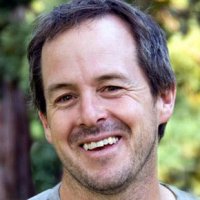
“‘What kind of beast would turn its life into words?’ Adrienne Rich asks in Twenty-One Love Poems, referring to the being/observing duality of a writer’s life—the persistent possibility of remove that turns the lived moment into ‘material.’ I also think of this quotation as a direct challenge about the time allotted to writing. If I spend hours fine-tuning phrases, reading and mulling and assigning myself difficult exercises, or if I am going to wile away mornings, evenings, and afternoons scribbling out my life, then I had better make the absolute most of writing time—those moments hammering on keys or etching ink across the page. Our duty and best possibility, I think, is to try. Edward Hirsch—responding to a question about partisanship in the contemporary poetry scene—once told me, ‘We need all of our poetries.’ I believe that assertion and apply it both to my reading (Mary Ruefle, François Rabelais, C. D. Wright, Countee Cullen, and Dante; books published by Wave, Copper Canyon, Bloof, and Alice Blue) and my listening (Blue Oyster Cult, Blondie, Bob Marley, and Bach) while struggling over sentences. I think that it’s best not to know where a poem or essay might come from and, of course, not to anticipate the next sudden swerve of where it might go. Cultivate possibility through a willed variety of influences.”
—Tod Marshall, author of Bugle (Canarium Books, 2014)
Photo credit: Amy Sinisterra




